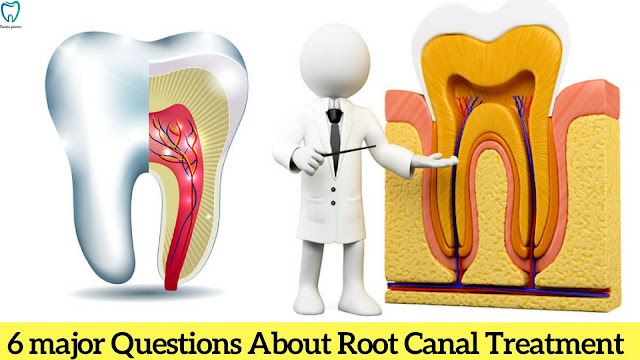Have you been told by your dentist that you just want a root canal treatment? If therefore, we’re certain you've got various queries the foremost queries patients raise about the treatment.
1] Are root canal treatments painful?
Root canal treatment once is done by the right endodontist at the right time, it will relief the pain and not cause it. Most pain comes from injured nerve tissue and root canal treatments involve removing the injured tissue, disinfecting the canal and sealing it. The endodontist is specialists in pain management, and most cases are treated quickly and comfortably.
2] How many dental visits do I need to complete my root canal treatment?
It extremely depends on the case however normally most root canal treatments are completed in one to two visits because of the advancement of endodontic science and technology.
3] Should I have my tooth pulled and get an implant or just live with the gap?
You may assume, why not have a tooth pulled, particularly if nobody can see it, however, you'll recognize your tooth is missing and it'll negatively impact your quality of life.
Missing teeth will cause different teeth to shift, effect on your ability to properly chew and ruin your smile. additionally losing your back teeth can cause you to age quicker and appearance older.
Implants are often nice choices if your tooth can't be saved however it should be your last choice once everything else fails. No denture, bridge or implant can look, feel and performance in addition to a natural tooth.
Modern endodontic offers advancements in technologies, procedures, and materials, supplying you with several treatment choices to save lots of your natural teeth. If you’re told root canal isn't associate possibility, raise why and request a referral to a dentist who is the specialist in saving teeth.
4] What will happen if I don’t do the root canal treatment?
An infected tooth remains infected till the tooth contains a root canal or is removed. If it's not treated, the infection will spread and an abscess will form.
The presence of an abscess is a sign that the infection has spread to the jawbone and close tissues.
Sometimes delaying treatment can mean that you simply even have to treat (or lose) the teeth on either aspect of the original infected tooth. Infection may spread into your tissues just like the face, the floor of the mouth and even the brain.
5] How do I know if I have an abscessed (pus)tooth?
People who develop symptom typically suffer from pain and swelling. The swelling itself is pretty unpleasant. it's full of pus, bacteria, and decaying white blood cells.
Some other symptoms are:
· Swollen neck glands
· Fever
· Severe pain
· Bitter taste in the mouth
· Redness and swelling of the gums
· Pain when chewing
· General discomfort and uneasiness
· Foul breath
· Tenderness in gums
· Swollen area of the upper or lower jaw
· The sensitivity of the teeth to cold or hot
· An open, draining sore on the side of the gum
6] Why should I see an endodontist for my root canal treatment? Can my dentist do it?
An endodontist is a specialist in managing, diagnosing and treating root canal infections and that’s because:
A] Endodontists have advanced education
To become specialists, endodontists have 2 to 3 years of extra education in an advanced specialty program in endodontists once finishing four years of dental school.
B] Endodontists are experts in pain management
Endodontists use specialized techniques to make sure patients are totally comfortable throughout their treatments. they're experts in administering numbing medications, particularly in patients who traditionally have issues obtaining and staying numb.
C] Endodontists use cutting-edge technologies
Endodontists have materials and instruments designed to create your treatment softer and successful s like dental operational microscopes, dental dam, and 3D imaging.
To Know More
Let's Connect

Comments
Post a Comment